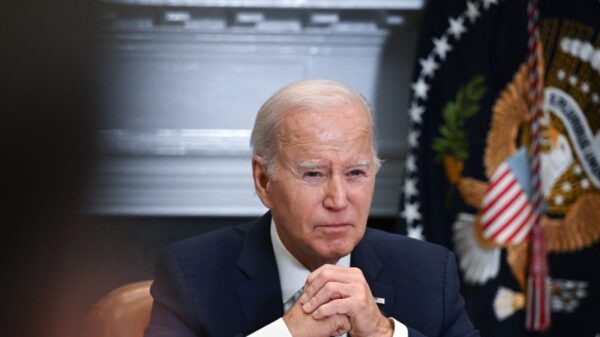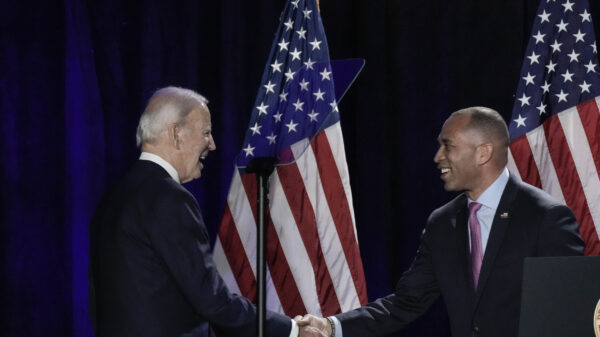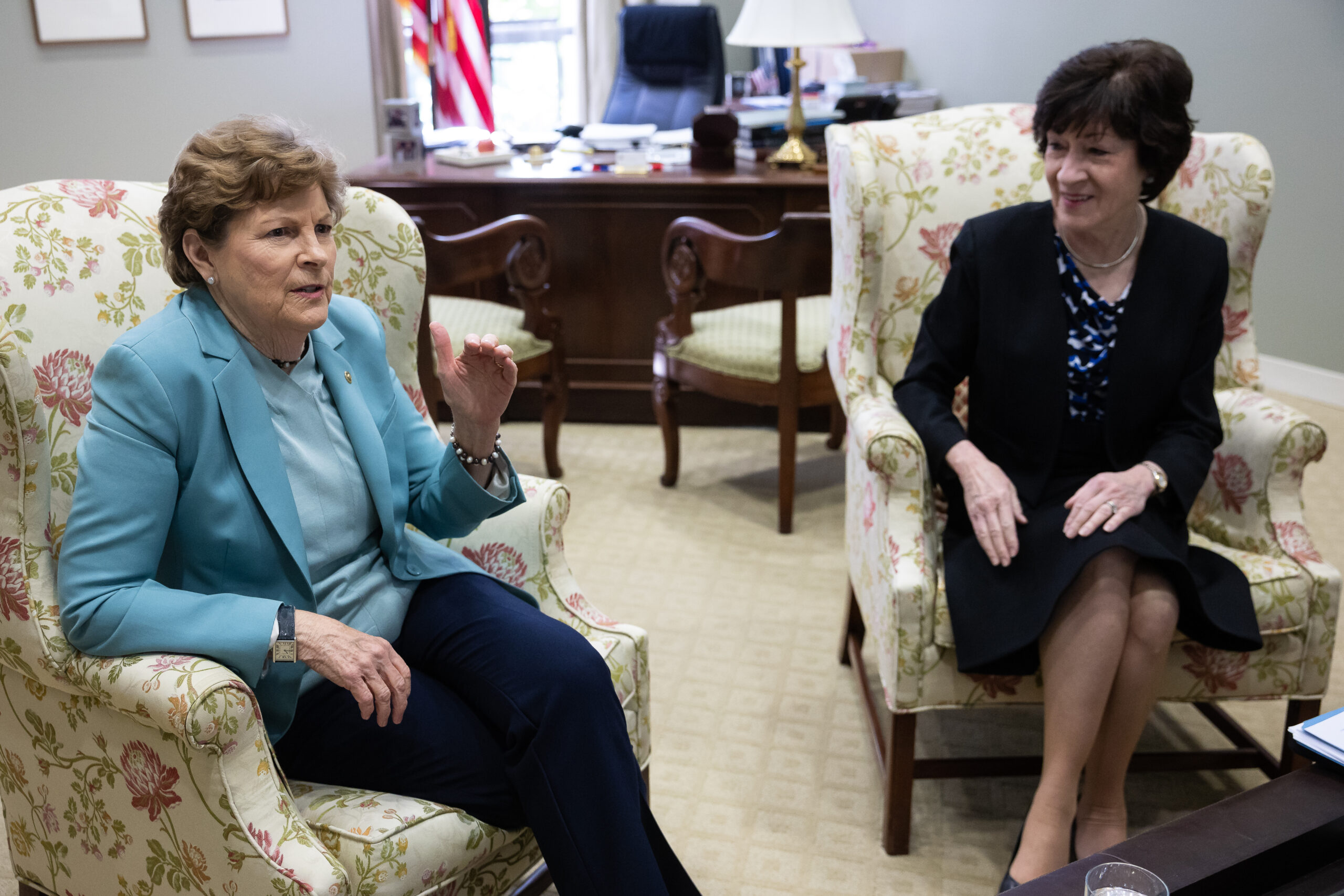Susan Collins started the Senate’s Diabetes Caucus back in 1997, and her Democratic colleague Jeanne Shaheen has co-led it for more than a dozen years. So excuse them for being a little miffed right now.
The buttoned-up bipartisan duo from New England is waging an awkward battle over legislation to reduce insulin costs, as Senate leaders weigh another cross-aisle pair’s plan as an alternative. With insulin price caps promising to become one of Congress’ signature health care priorities this year — helping tens of millions of Americans along the way — Sens. Collins (R-Maine) and Shaheen (D-N.H.) are squaring off against an odd-couple Southern pair of prominent junior senators: Sens. Raphael Warnock (D-Ga.) and John Kennedy (R-La.).
Both crews want insulin costs capped at $35 monthly for people with diabetes, but that’s where the similarities end between their proposals.
“Our approach reflects our years of working on this issue, and it’s so much broader. It’s so much more comprehensive,” Collins said in a joint interview with Shaheen, the moderate Mainer’s longtime partner on bills ranging from broadband expansion to post-Jan. 6 reform. Shaheen observed that “our proposal is better than theirs” before taking a more diplomatic tack: “It’s more comprehensive. That’s a better way to say it.”
The disparate duos are fighting for the approval of Senate Majority Leader Chuck Schumer and the Senate health committee’s chair, Bernie Sanders (I-Vt.), both of whom have avoided a firm stance while assembling other pieces of a large drug-pricing measure that could get a vote as soon as this month.
Assessing the outlook in his typically quotable style, Kennedy said that while Warnock and Shaheen are vying for Schumer’s support, “one’s probably biting on his right ear, and one is probably biting on his left ear.”
It’s not just Democrats angling for Schumer’s attention. Insulin is important enough to Collins that she’s spoken privately about the issue with Schumer, an intriguing detente after the New Yorker spearheaded 2020’s Democratic spend-a-thon to try to beat the Maine Republican — which caused an icy few months between the two senators.
“Both Jeanne and I were asked to come talk to him, and we’ve both done that,” Collins said. “I’m always hesitant to characterize Sen. Schumer. But he seemed receptive.”
But Warnock has held his own meetings with the Democratic leader. The recently reelected Georgian saw his approach to insulin price caps adopted for Medicare patients last year in Democrats’ party-line passage of the Inflation Reduction Act, and he’s betting his juice will extend beyond his successful reelection bid.
Asked if Schumer committed to moving his bill forward, Warnock said: “I have assurances that my bill to cap the cost of insulin, which is a bipartisan bill introduced by me and Sen. Kennedy, will be a part of any health care package that moves forward.”
The Warnock-Kennedy effort would offer people with private insurance the IRA’s price cap of a $35 copay for a 30-day supply for a 30-day supply of one of each insulin dosage form — a policy President Joe Biden advocated in his State of the Union Address this year. It also directs the Department of Health and Human Services to set up a program in which the uninsured would have access to the same $35 rate through “qualified entities,” a term that likely refers to federally qualified health centers.
Democrats pushed to include a $35 cap in the commercial insurance market in their party-line measure but were forced to strip out the provision after the Senate’s nonpartisan rules referee decided that it didn’t qualify for budget rules which evaded the 60-vote threshold. Seven Republicans supported the price cap in that vote, demonstrating the possibility of a deal under the current divided government.
In contrast, the Collins-Shaheen bill would limit monthly cost-sharing for at least one insulin type and dosage to $35 or 25 percent of the list price, whichever is lower. It would also require pharmacy benefit managers to pass through 100 percent of insulin rebates and discounts from manufacturers to insurance plans.
Furthermore, it largely limits insurers from imposing prior authorization and medical management on insulin products and seeks to speed up new competition to further reduce costs.
“We’re not just looking at: How do we address out-of-pocket costs? But also: How do we encourage more competition?” said Shaheen, who has a granddaughter with Type 1 diabetes.
Schumer is not tipping his hand on a sensitive issue that will alienate some of his members no matter what he does given his close relationships with both Shaheen and Warnock. Schumer spokesperson Alex Nguyen said: “Prescription drug reform and insulin pricing remains a top priority for leader Schumer. He’s committed to getting a $35 insulin bill passed, and the details are still being worked out.”
The legislative push to again tackle insulin legislation comes despite recent commitments from Eli Lilly, Novo Nordisk and Sanofi to lower the list price of some insulin products this year or next — a decision policy experts say is a response to political headwinds, generic competition and bigger Medicaid rebates set to kick in in 2024.
Sanders, who introduced his own insulin pricing bill in March to cap the list price of the drug at $20 per vial, is dragging the CEOs of the three major insulin manufacturers before his committee this month. That hearing comes after the committee is slated to act on a drug pricing package this week, which focuses on pharmacy benefit manager practices and generics competition, indicating that tough choices on which insulin legislative approach to take are being deferred.
“Advocates for lower insulin prices would rightly point out that most of these, aside from Senator Sanders’ bill, focus largely on what insurers charge patients and not what drug companies are paid,” said Stacie Dusetzina, a health policy professor at Vanderbilt University Medical Center. “If you only cap the copayment, then there is a possibility that manufacturers could raise prices.
The Senate health committee’s May 10 hearing on insulin affordability — which will also include the CEOs of the three major PBMs — is likely to signal whether there is enough Republican support for additional insulin legislation.
“Obviously, a dramatic change with regard to insulin is already underway, and we’ll see how that plays out,” Sen. Mitt Romney (R-Utah) said. “Whether there’s different additional legislation needed, that’s something we’ll have to evaluate.”
Sanders predicted a future effort to bring the various insulin bills together, a path to which Warnock appears agreeable.
“In my view, we’re all on the same team here, we’re trying to get across with insulin,” Warnock said. “There is more than one approach here.”
But Shaheen and Collins said their legislation is so sweeping compared with the Warnock-Kennedy bill that the two approaches would be nearly impossible to reconcile; Collins described their effort as “so much more comprehensive a bill that it’s difficult to compare.”
From his vantage point, the twangy Louisianan thinks the four senators — and the majority leader — can put aside the sparring and cut a deal.
“It seems to me the short way home is to let all four of us come together with Sen. Schumer and work something out in one bill,” Kennedy said. “But having said that, the real issue is how to pay for it. If we can pay for it, I can sell it on my side.”































